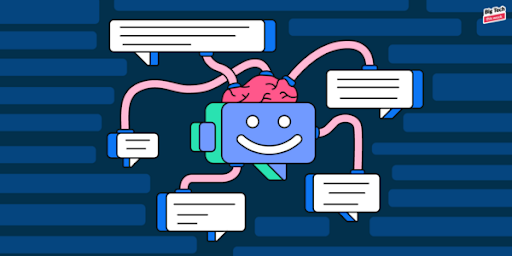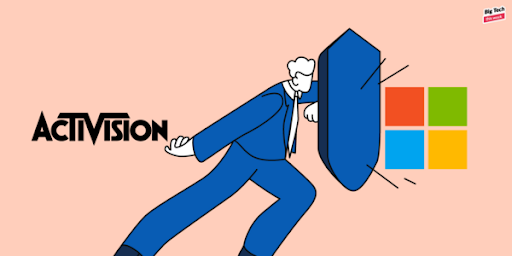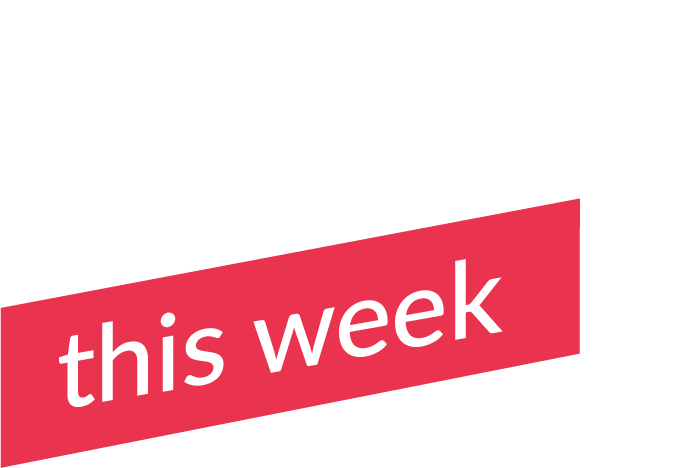Top of mind: Happy Sunday!
I’m super excited to announce that our Meta Quest 2 Virtual Reality Headset winner is Olumide Oderinwale! We will be contacting you for delivery deets.
Congratulations, Olumide, and I hope you enjoy your new life in the metaverse. 🎉😂
PS – This issue is also our last one this year as we get ready for the holidays and transition to our own site – thanks to Elon Musk shutting this newsletter platform down. I anticipate we will return on February 5th, 2023, with a spanking new look! Be ready for us 🙂
Let’s get to our last news of the year!
3 big things:
- Chipper Cash’s new reality
- The rave about ChatGPT?
- Microsoft is reeling
Chipper Cash faces headwinds

The short: Chipper cash joins startups globally dealing with mass layoffs thanks to the bloodbath that’s been 2022.
Road to unicorn status: In May last year, Chipper Cash raised a $100 million Series C funding round led by SVB Capital – the investment division of Silicon Valley Bank. In November of the same year, it received a $150 million extension round led by Sam Bankman Fried’s now-bankrupt company FTX.
The $250 million investment made Chipper’s valuation soar to $2.2 billion, making it one of Africa’s most valuable startups – with FTX contributing $40 million to Chipper Cash’s extension round.
Valuation slash: It’s unclear how much Chipper raised this year, but filings indicate that Chipper received an extra $35 million in SAFE (Simple agreement for future equity) from FTX at a $1.25 billion valuation.
The new valuation is supposed to be fully implemented in a subsequent pricing round. Still, with FTX’s bankruptcy in play, it’s unclear if Chipper will keep this valuation in its upcoming priced round.
Everyone gets a layoff: On Monday, news broke about layoffs at the company as Chipper’s laid-off and unaffected staff trooped to LinkedIn to share their stories. The engineering team suffered the heaviest blow, with about 60% of those laid off coming from the department. A total of about 50 or 12.5% of its employees were affected.
Final thoughts: Like many tech companies this year, Chipper Cash is going through a rough patch, especially with the collapse of its lead investor. 60% of the engineering department’s layoffs hint at a slowdown in innovation and a focus on sustainability.
5 things to know about the new mind-bending AI tool

The short: This week, OpenAI’s ChatGPT went viral for being the most advanced Chatbot ever released to the public.
It was a wonderful week for AI – from Lensa AI’s Magic Avatars to OpenAI’s ChatGPT – so we’re giving you a quick crash course in the latest AI technology for those conversations where you need to let folks know you’re smart as hell.
Here are five things you should know about ChatGPT:
Its origin: ChatGPT is a chat-based application created by the research facility OpenAI to provide search results with a conversational tone. OpenAI was founded in 2015 by Sam Altman, Elon Musk, and other Silicon Valley investors as a non-profit organisation dedicated to artificial intelligence research.
Due to a conflict of interest involving OpenAI and the autonomous driving research being conducted at Tesla, Musk resigned from the board of directors in 2018.
On November 30, ChatGPT was made available to the public via OpenAI’s website, where users can try it for free.
How it works: ChatGPT’s bot features a dialogue style where users can give straightforward or complex instructions for ChatGPT to follow and respond to in detail.
OpenAI boasts that the Chatbot can even respond to follow-up questions and acknowledge when it has made a mistake. To avoid facing a similar fate like AI experiments from Microsoft, Meta and other competitors that got shut down for racism and misinformation, OpenAI used an AI-based moderation system that helps block harmful information from getting into its database.
Game changer?: Boy, has ChatGPT got some tricks up its sleeve. It can produce complex Python code, compose college-level essays, run a virtual machine, make you a diet and workout plan, etc. What’s impressive is not just the fact that it can carry out these complex tasks in seconds but also the level of detail and human-like language it produces.
I can’t think of a better showcase of its human-like sound than the first few minutes of this MKBHD video, where he talks about why ‘AI can’t replace creatives’ while reading from a non-distinguishable script written by ChatGPT.
The limitations: Pump the breaks on the excitement or fright – depending on whether you’re already picturing Javis or Terminator, respectively. We’re not at the Hollywood level yet. ChatGPT has some limitations, such as a knowledge base that expires in 2021, the tendency to give wrong answers, unnecessarily repeat words, and the claim it cannot answer a question, only to answer it when it is slightly rephrased.
The concerns: The blissful week for artificial intelligence PR was also met with bad press. There are concerns about how AI could affect academics and journalism.
Stack Overflow – a developer site banned ChatGPT after it was flooded with wrong answers generated on the AI. There are also ethical concerns about the data source used to train these AIs. For example, musk blocked OpenAI’s access to Twitter’s data, and Lensa AI is under fire for using unlicensed art to train its AI.
Final thoughts: This is the latest in a long line of AI tech. The quickest thing that needs consideration is ethics around data sources and safety. ChatGPT is emerging and being built by an org that understands AI governance – but hey, the jury’s still out on ChatGPT’s longevity.
FTC sues to block Microsoft-Activision deal

The short: The US Federal Trade Commission is suing to block Microsoft’s $68.7 billion acquisition of gaming giant Activision Blizzard.
The suit: The US Federal Trade Commission moved to block the deal claiming in its lawsuit that Microsoft has a history of being stingy with games.
Microsoft has already shown that it can and will withhold content from its gaming rivals. Today we seek to stop Microsoft from gaining control over a leading independent game studio and using it to harm competition in multiple dynamic and fast-growing gaming markets.
- FTC’s Bureau of Competition Director Holly Vedova
In Europe, there are regulatory obstacles to the acquisition as well. As a result, Microsoft plans to present remedies to EU antitrust regulators before they formally block the deal.
Too much power: Other rivals in the gaming industry, like PlayStation’s Sony, are also against the deal. They argue that the proposed merger would combine some of the most well-known games in the world under the Xbox brand and give Microsoft an unfair advantage.
Microsoft has been seeking to fend off the regulatory threat recently with a ten-year pledge to treat Call of Duty equally on the PlayStation and even vowing to bring it to Nintendo if the deal goes through.
Final thoughts: The Activision acquisition is a big deal. Beyond the FTC and sour competitors, being only able to play Call of Duty on a Microsoft device or platform isn’t an ideal future for gamers. So, the FTC better do their work.
—
That’s it for the week! I’d love to hear your thoughts about this week’s issue. Please respond to this email or find me on Twitter @fatuogwuche 🙂
Ps – do us a solid by sharing the newsletter with your network of tech enthusiasts. Invite them to join the party 🙂
See you next Sunday!

